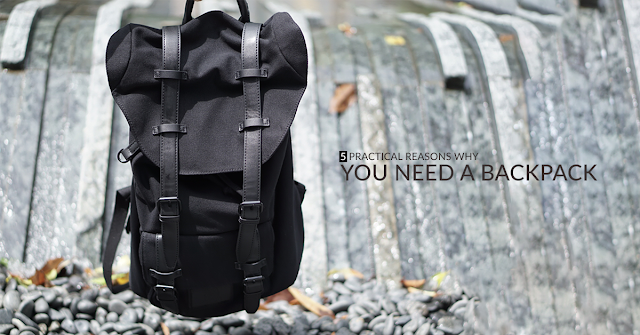We spend a third of our life sleeping, or 9,125 days, if we live till 75 years old. Despite knowing the importance of a good sleep, most of us are guilty about trying to save on pillows and mattresses.
"Nah, just get the $10 one in that abandoned sales cart over there. It's just a pillow." or, "What? $3000 for a mattress? I'll just sleep on my cat."
And then we complain on our Instagram Story about not having a good night sleep since forever.

Getting a good night’s sleep is essential to staying happy and healthy people! We've compiled a quick, yet detailed guide to choosing the best mattress and pillows based on your sleeping habits. You can thank us in your dreams later.
Types of mattress
Open spring mattress: These contain one long piece of metal wire coiled into numerous springs. There’s also an additional border rod or wire to maintain shape and provide structure. They tend to be less supportive than other mattresses, and are very much an entry level sleeping solution and should not be chosen for the long term.
Pocket spring mattress: A more luxurious option as compared to open spring, pocket spring provides more support. The general rule of thumb is to get pocket sprung mattresses that have 1,000 springs or more - anything below that is considered low quality. This is a good option if you’re looking for a bed for two people, as the separate springs will cater for your different needs and weights.
Bed-in-a-box: Born out of newly pioneered manufacturing and packing processes, the bed in a box model allows you to buy a mattress online from your home and have it delivered to your door in a conveniently sized box. They are usually made from foam or a hybrid between memory foam and springs.
Memory foam mattress: These more modern mattresses are made from Polyurethane foam (a synthetic petroleum based material) which slowly responds to body temperature and weight to take the shape of the user, and has hypo-allergenic properties. This means it will mould to the shape of your body, absorb your weight and relieve pressure on your joints. Not everyone likes the sinking motion of this type of mattress, and it can get rather warm - which can be uncomfortable if you live in tropical countries.
Latex mattress: Often considered a premium bedding option, these mattresses are filled with latex foam, which is an especially breathable material, so you won’t overheat in the middle of the night. It’s also extremely durable and should last for many years. Latex also has anti-microbial properties, inhibiting bacteria, fungi and dust mites, benefitting those with allergies or respiratory problems.
Hybrid: Drawing from a combination of materials that usually include memory foam, latex and pocket springs, hybrid mattresses are designed to give a more balanced sleeping experience. They often come with a pocket-sprung base and a memory foam top layer, providing both comfort and support – alleviating aches and pains by responding to your body’s shape.
Choosing your mattress firmness
The type of firmness you need will depend on your sleeping position, height and weight.
Soft: Side sleepers or those who change positions during the night are best suited to soft mattresses. This is because the way you sleep already relieves pressure from your spine so you want your mattress to mould to your body’s natural position.
Medium soft: This is ideal for those who change their sleeping position during the night, as it will still mould to your body position but provide a little more support.
Medium firm: This is best for people who sleep on their back as you require extra lower-back support, which this type of firmness offers.
Firm: This type of mattress is ideal for those who sleep on their front, are over 100kg or suffer from back pain. This is because it will keep your back in a relatively comfortable and stable position without allowing you to sink into it as you sleep, which can cause lower-back pain.
Types of pillow
The wrong pillow can be a real pain in the neck. The ideal pillow fit depends on which type of sleeper you are.
Back-sleeper: Choose a thin pillow so that it won’t throw your head too far forward, putting stress on your neck. Memory foam might be a good choice, as it will mould to your neck's curve, giving consistent support. Also, try sleeping with another pillow under your knees to alleviate pressure on your lower back.
Stomach-sleeper: Go for the thinnest pillow, or opt out of pillow altogether. However, S=sleeping on your stomach puts lots of stress on your lower back, so try sleeping on your side instead and hug a body pillow/bolster if you like the feeling of something pressing against your stomach.
Side-sleeper: A firm, high pillow is best, as this will help keep your spine and neck aligned. You may also benefit from sleeping with a pillow between your knees, as this can help to prevent pain in the lower back.
Also, the type of mattress you have will affect your choice of pillow. If you use a firm mattress, then a softer pillow may be better, because the pillow is lying on a firm surface and needs to adapt to the pressure of the weight of your head in your starting sleep position. If you have had a softer mattress, then a firmer pillow may be better to keep your head and neck aligned.
As a general rule of thumb, your pillows should be changed every 18 months or so. Yeap, 18 months, not 18 years. You can test if a pillow is ‘dead’ by seeing if it springs back after you fold it in half. If it doesn’t spring back, it’s time to get a new one!
If all these are confusing and sound like a lot of hard work to find the perfect mattress and pillow for you, we are here to save your lazy-ass day. Enter DPM™ point-to-point mattress and pillow.
DPM™ POINT-TO-POINT® MATTRESS

DPM stands for Doctor Pillow Mattress, and they are a group of professionals who have partnered up with many osteopathy and physical therapy to create the concept of “healthy sleep”, committing to a custom-fitted comfort for the sleeping. This means that DPM is a 100% Custom Fit Mattress. Their mattress and pillow are customised according to each individual’s height, weight and sleeping positions!
DPM uses a Point-To-Point sensor that can read your body support and pressure distribution when you lie. Using this scientific data, DMP’s professionals will work according and configure a perfect custom fitted mattress for you.

And, because it is 100% customised, DPM is also able to configure the two halves of the mattress separately, creating a personalised comfort zone for you and your partner! This can also minimise the disturbance to you even when your partner shifts position on the other half of the mattress.


The team was recently at their 2nd year anniversary and Invention Patent Celebration Media Preview (congrats!), and we heard from the General Manager of DPM, Mr Jeffrey Wong, who also personally demonstrated now DPM works and why it is the best-tailored mattress and pillows ever made.

Singapore's celebrity, Thomas Ong, was also invited to share about his personal experience on DPM’s mattress. He has been a supporter for DPM and we got to hear from him that he really loves DPM’s mattress and that he would highly recommend it to anyone that wants quality sleep!
If you are already interested in getting your hands on DPM mattress and pillow, head over to their website now to find out more!
You can also follow them on their Facebook page & Instagram (@dpmmattress) for more sleep-related contents and even giveaways!


































 I have multiple "Evilbean" personalities. Meet EatingEvilbean, Traevilbean, Lifebean and Rantingbean. They are all pleased to meet you.
I have multiple "Evilbean" personalities. Meet EatingEvilbean, Traevilbean, Lifebean and Rantingbean. They are all pleased to meet you.










